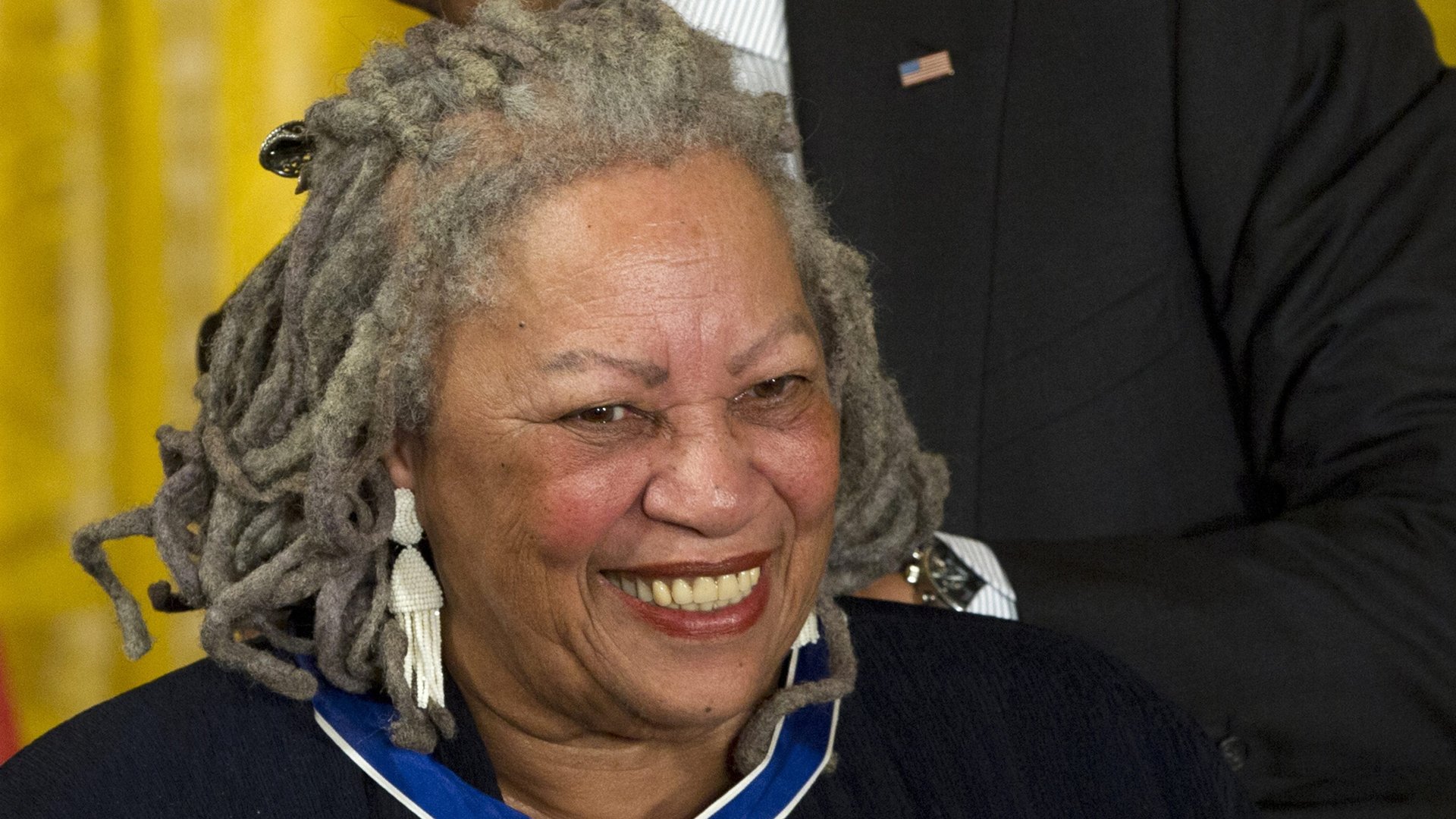Read Toni Morrison’s prescient essay about white supremacist violence and Trump
Toni Morrison, the first black woman to receive the Novel Prize in literature, has died, her family confirmed today. She was 88.


Toni Morrison, the first black woman to receive the Novel Prize in literature, has died, her family confirmed today. She was 88.
Widely known for her Pulitzer Prize-winning novel Beloved, Morrison was one of the most important American writers of the 20th century. In 2012, Barack Obama awarded her the Presidential Medal of Freedom, calling her works, which lyrically documented the complexities of the black experience in America, “hallmarks of the American literary tradition.”
Morrison wrote 11 novels; Her last, God Help the Child, was published in 2015. Before becoming a novelist, Morrison had a career in publishing. She was the first black woman senior editor at Random House, where she helped elevate the works of black writers.
Already social media has been flooded with insightful quotes by, and touching tributes to, Morrison. The day will no doubt be filled with remembrances, stories of how Morrison’s writing affected a generation (anyone who took an English course in college in the last 30 years probably has one), and paeans to her innumerable accomplishments. Morrison was a giant.
Yet it is a short essay Morrison published days after Donald Trump was elected in 2016 that shows just how prescient and clear-sighted her writing could be.
In “Mourning for Whiteness,” part of a collection of essays in the New Yorker magazine on the aftermath of the election, Morrison describes why some white Americans use violence as a last-ditch effort to uphold fading notions of their superiority—an act which occurred again this week when a white supremacist killed 22 people in a Walmart in El Paso, Texas.
Morrison starts by explaining how diversity threatens the long-held, racist idea dating back to slavery that “Americanness” is whiteness:
This is a serious project. All immigrants to the United States know (and knew) that if they want to become real, authentic Americans they must reduce their fealty to their native country and regard it as secondary, subordinate, in order to emphasize their whiteness. Unlike any nation in Europe, the United States holds whiteness as the unifying force. Here, for many people, the definition of “Americanness” is color.
Under slave laws, the necessity for color rankings was obvious, but in America today, post-civil-rights legislation, white people’s conviction of their natural superiority is being lost. Rapidly lost. There are “people of color” everywhere, threatening to erase this long-understood definition of America. And what then? Another black President? A predominantly black Senate? Three black Supreme Court Justices? The threat is frightening.
Then Morrison shows how the “true horror of lost status” drives white supremacists to violence as an attempt to “keep alive the perception of white superiority”:
In order to limit the possibility of this untenable change, and restore whiteness to its former status as a marker of national identity, a number of white Americans are sacrificing themselves. They have begun to do things they clearly don’t really want to be doing, and, to do so, they are (1) abandoning their sense of human dignity and (2) risking the appearance of cowardice. Much as they may hate their behavior, and know full well how craven it is, they are willing to kill small children attending Sunday school and slaughter churchgoers who invite a white boy to pray. Embarrassing as the obvious display of cowardice must be, they are willing to set fire to churches, and to start firing in them while the members are at prayer. And, shameful as such demonstrations of weakness are, they are willing to shoot black children in the street.
To keep alive the perception of white superiority, these white Americans tuck their heads under cone-shaped hats and American flags and deny themselves the dignity of face-to-face confrontation, training their guns on the unarmed, the innocent, the scared, on subjects who are running away, exposing their unthreatening backs to bullets.
Finally, Morrison ends by connecting this violent, racist ideology to Donald Trump, whose political platform provides these ideas safe harbor and emboldens their perpetrators:
So scary are the consequences of a collapse of white privilege that many Americans have flocked to a political platform that supports and translates violence against the defenseless as strength. These people are not so much angry as terrified, with the kind of terror that makes knees tremble.
On Election Day, how eagerly so many white voters—both the poorly educated and the well educated—embraced the shame and fear sowed by Donald Trump. The candidate whose company has been sued by the Justice Department for not renting apartments to black people. The candidate who questioned whether Barack Obama was born in the United States, and who seemed to condone the beating of a Black Lives Matter protester at a campaign rally. The candidate who kept black workers off the floors of his casinos. The candidate who is beloved by David Duke and endorsed by the Ku Klux Klan.
You can read the full essay, as well as essays by writers like Jill Lepore and George Packer, at the New Yorker.